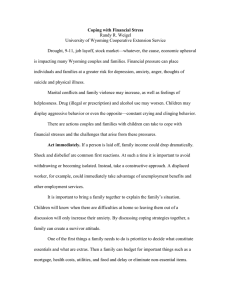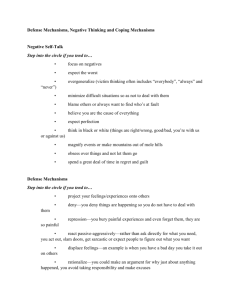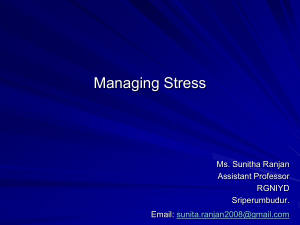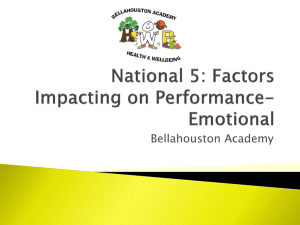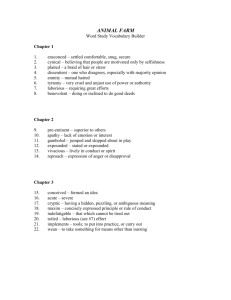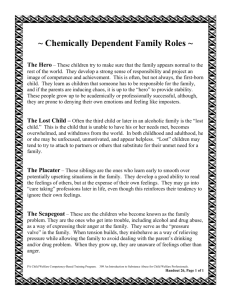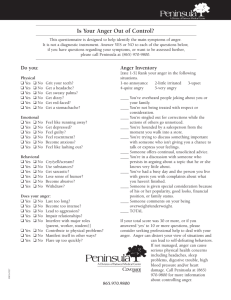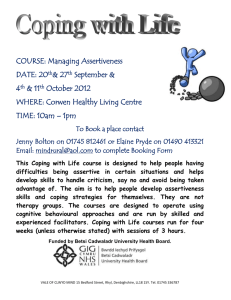COPING WITH STRESS UNHEALTHY COPING STRATEGIES
advertisement
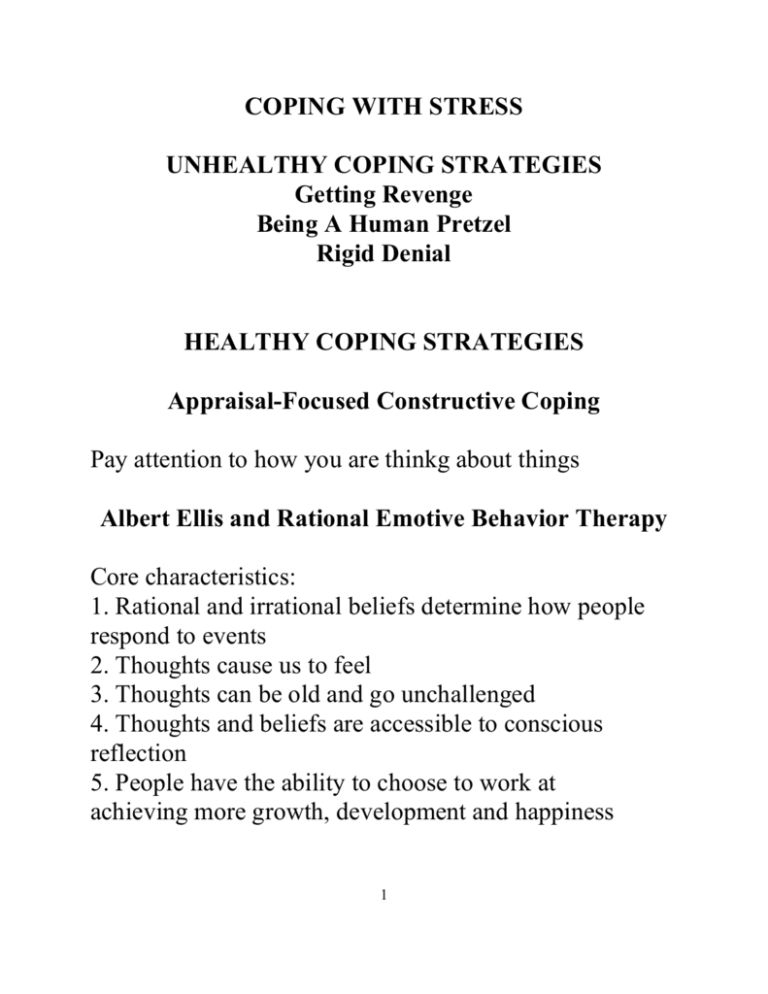
COPING WITH STRESS UNHEALTHY COPING STRATEGIES Getting Revenge Being A Human Pretzel Rigid Denial HEALTHY COPING STRATEGIES Appraisal-Focused Constructive Coping Pay attention to how you are thinkg about things Albert Ellis and Rational Emotive Behavior Therapy Core characteristics: 1. Rational and irrational beliefs determine how people respond to events 2. Thoughts cause us to feel 3. Thoughts can be old and go unchallenged 4. Thoughts and beliefs are accessible to conscious reflection 5. People have the ability to choose to work at achieving more growth, development and happiness 1 Ellis's Three Categories of Unrealistic Demandingness 1. Self-demandingness 2. Other-demandingness 3. World-demandingness Thinking Distortions Arron Beck 1. All-or-Nothing Thinking 2. Overgeneralization 3. Mental Filtering 4. Disqualifying the Positive 5. Jumping To Conclusions 6. Magnification (Catastrophyizing) or Minimization 7. Emotional reasoning 8. Should Statements Problem-Focused Constructive Coping Learning to Accept Life as Life is Murphy's Law Finding Meaning Dealing With Failure 2 Forgiveness vs Forgetting Forgiveness is healthy. Forgiving and forgetting is not healthy. Time Mangement Lasswell Keep track of how you spend each day for 14 days. Set your goals. What are your priorities? Learn to say "No" Learning to say "yes" First. What are your top four or five priorities? Does this request or option fit here. Second: If saying yes does not fit into your top priorities, ask yourself why would you even think of saying "yes." Third: Even if the activity or obligation does not fit into your priorities, you really want to do it. What are you willing to give up? 3 Fourth: If you do not want to do this in the first place, ask yourself why would you say "yes?" Fifth. The answer to four may be that you don't want to do it but you should. Emotion-Focused Constructive Coping Anger Management Bradshaw Anger is a secondary emotion, secondary to: Frustration Hurt. Fear of Change Feeling Threatened Fear of Losing Control Two important principles of Anger Manager 1 In an anger producing situation, always take time to think about what is really going on. 2. Always respond respectfully and courteously even when angry. Evoking the anger of an other person will do little for resolving the problem. 4 Positive Methods For Expressing and Re-Channeling anger 1. First and foremost pay attention to your thinking! Some upsetting throughts are distortions of reality and reveal flawed thinking. Blaming Personalization Mental Telepathy Polar Thinking Tunnel vision 2. Change Your Thoughts: the first key to the positive channeling of your anger is to change your thought from upsetting and faulty to calming ones. 3. Examine Your Feelings. 4. Say something to the other person that is honest and not attacking 5. Decide what you really want. 6. Behave Appropriately 7. Pay attention to both your feelings and the other person's feelings. 8. Mentally step back and look at the big picture. 9. Respect an appropriate level of anger. 5 Venting Techniques Writing in a journal Exercise Talking with Someone with a Cool Head Mediation 6
